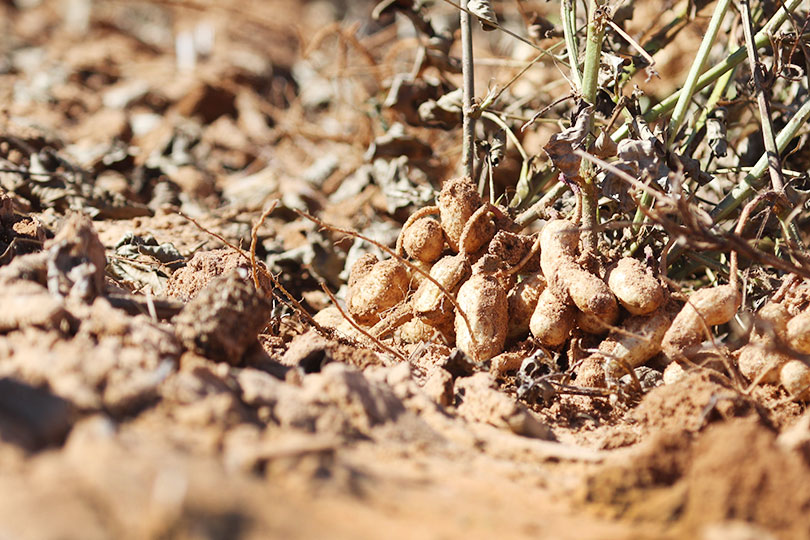By Jessica Domel
Multimedia Reporter
Drought took a toll on the Texas peanut crop this season.
Shelly Nutt, executive director of Texas Peanut Producers, said the crop looked good initially, but as farmers started harvesting, they noticed a yield loss.
“It’s directly attributable to the high temperatures in July and August and no rain. So, we’re a little disappointed,” Nutt told the Texas Farm Bureau Radio Network. “Yields are down in West Texas roughly 10 percent.”
Grades were also down slightly in West Texas.
“It’s so disappointing when you see such a beautiful crop on top of the ground,” Nutt said. “You just can’t help but be really optimistic about it, and then when they are harvested and you’re getting back these yields in grades, it’s so disheartening to see that loss.”
Yields near Clarendon were down about 20 percent
“My peanut farmer director in Clarendon, Michael Newhouse, talked about how just the crop looked beautiful, but in July and August, we were just so hot and so dry that we had to know it was going to impact what was under the ground. It’s still hard to not get optimistic,” Nutt said.
Texas peanut farmers were busy the last few weeks of October trying to get their crops harvested before the cold weather arrived.
They were forecast to plant around 185,000 acres of peanuts this year, according to Nutt.
She noted Texas is the only state in the nation that can grow all four types of peanuts.
“Those peanuts are runner varieties, which you find mostly in peanut butter; Virginias, which are those big, pretty ballpark peanuts that you crack the shell on–we call them in-shell peanuts; the Spanish peanut, which is the pretty, little small round peanut that you eat with the red skin on it, like a cocktail peanut; and then Valencia, which is a very niche market. It’s used in a lot of organic specialty butters,” Nutt said.
Texas farmers also grow organic peanuts.
“We can fill those market needs that no other state can. So, besides having a very high-quality peanut, because we are under irrigation in Texas, we do grow all four types plus those organics,” Nutt said. “It really does make for fun marketing on my end, because I can promote all the different types and the organics, and there’s not a need that a peanut buyer could have that we can’t fill for them.”
Texas is the second largest peanut-growing state in the nation.


Great article